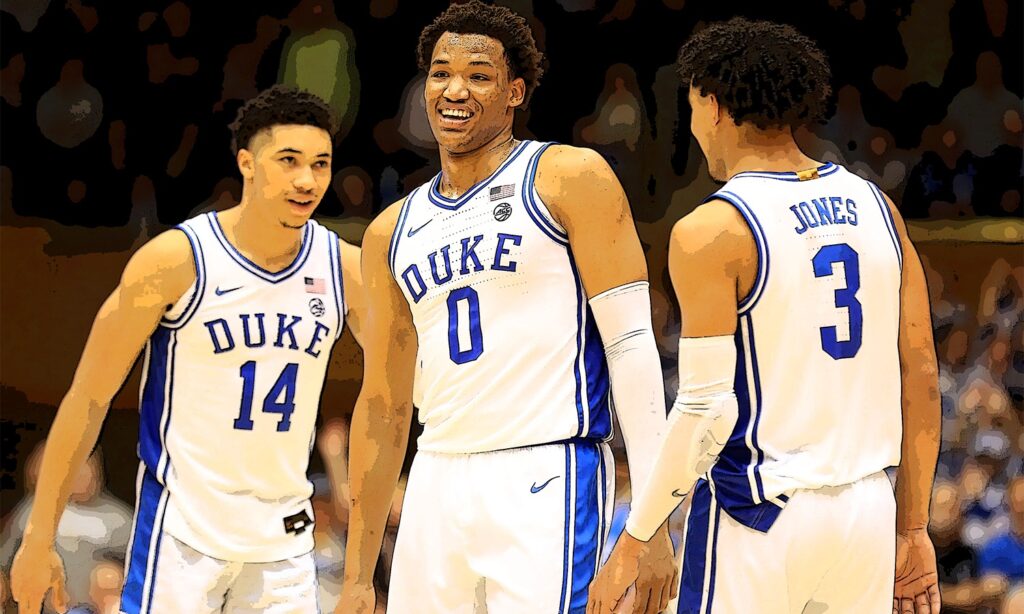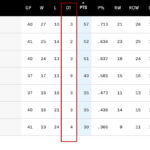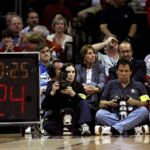When it comes to the “big 4” sports in America, not all games finish equally.
That is, some league games can finish in a tie, while others must end with an outright winner and loser.
Of course, were talking here about the regular season.
When it comes to playoffs, a winner must always be declared to proceed to the next round or to crown a champion.
And for those that don’t know, the “big 4“sports are Baseball, Basketball, Football and Hockey.
Prior to the 2005-06 NHL season, regular season games could end in a tie in hockey.
However, the new rules included a shoot-out following a 5-minute overtime period.
The shoot-out is the last straw for declaring the game winner.
Meanwhile, football games can end in a tie following if neither team can capitalize in overtime.
And when it comes to Baseball, teams go to extra innings and play continuously until a winner can be determined.
As for Basketball, the same rules apply for both professional and college leagues. Our focus here will be on College Basketball.
The games will go to overtime if regulation ends in a tie. So, the question you seek an answer for is…
How does Overtime work in College Basketball?
Overtime periods are 5 minutes long in College Basketball such as the NCAA. If the score is remains tied after the first overtime, the game will continue to a second and so on. Just like the NBA, college games must end with a winner in both regular season and playoffs.
And just like at the start of the game, the overtime period begins with a tip-off to determine who gets initial possession of the ball.
So, at this point you might be thinking to yourself, “Overtime in College Basketball is no different than the NBA. Yeah, I’m good!”.
But there is one major difference in overtime rules.
Overtime Timeouts
In the NBA, each team is awarded two timeouts to start the overtime period. Teams can use these as they please.
At the NCAA level, each team is granted one 75-second timeout.
However, any unused timeouts from regulation are rolled over to the overtime period and can favor one or both of the teams.
At this point, your players are very tired and have to play the unexpected extra period.
An additional timeout can get the rest needed to recharge and talk strategy.
Furthermore, it’s your top players who are likely to be the most gassed, with very few to no fouls to give.
The longer you can keep them in the game, the better chance you emerge the winner.
Longest College Basketball Overtime
The longest game in College Basketball history took place back in 1981 between the Cincinnati BearCats and the Bradley Braves of the NCAA Division I League.
The game ended with a final score of 75-73 in favor of the Bearcats at the Robertson Memorial Field House in Peoria, Illinois.
They played a total of two halves and seven (yes, x7) overtime periods.
In total, the game lasted 75 minutes in playing time.
The main reason may have been because, the NCAA had not implemented the shot clock rules at the time.
There are three other NCAA games that have reached six overtime periods. Those include Niagara defeating Siena 88–81 in 1953, Minnesota defeating Purdue 59–56 in 1955, with the most recent being Syracuse defeating Connecticut 127–117 in 2009.
Final Thoughts
Overtime periods are fun to watch, especially when it comes to the constant back-and-forth between college rivals.
One thing we didn’t cover was how overtime in College Basketball compares to other sports during the playoffs.
This is where Baseball and Basketball have the most in common.
The overtime period must be played to completion, the same way each baseball team gets a chance at bat for the extra innings. Think of an inning as representing each overtime period.
Hockey overtime usually come to a screeching halt due to the sudden death format. That is, the game ends once either team scores a goal.
As for Football, college included, each team is guaranteed at least one possession of the ball during the overtime period.
The team with the most points at the end of overtime wins.
If the second team is still on their initial possession and the time runs out, the game will extend to a second overtime.
Basically, no other sport plays it by from a perspective of guaranteed ball possession.
Nonetheless, basketball overtimes can either end lopsided or tight to the final buzzer.
It all depends on whether one team can dominate or both teams keep pace.
While 5-minutes seem short compared to the rest of the game, plenty can happen during that time frame, especially with the shot clock implementation.







